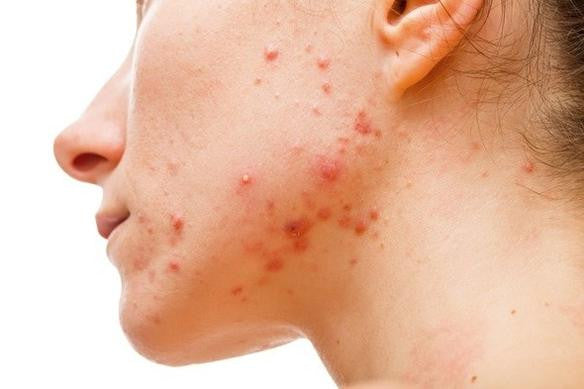Genetics of Acne



Acne is a common condition that many suffer with.
BY LIJI THOMAS, M
Acne is the most common of all skin conditions. It affects people across several age groups, from adolescence to middle age.
It is fundamentally a disorder of the pilosebaceous units of the skin, which consist of the hair follicles and the attached sebaceous glands. These glands produce an oily secretion called sebum, which escapes from the hair follicle through the canal opening onto the skin surface.
The hair follicles are lined with keratinocytes, which give rise to the hairs on the skin. These mature and are released from the surface.
Plugging of the canal orifice is responsible for the basic acne lesion – this involves the development of a closed comedo, which is a blocked and swollen hair follicle distended with sebum and cellular debris.
Factors Which Predispose to Acne
Such predisposing factors include:
· Colonization of the follicles by the skin bacteria, especially Propionibacterium acnes
· Overproduction of sebum by the glands
· Increased shedding of keratinocytes within the follicle
· Release of inflammatory chemicals
The causes of acne are not yet identified but are thought to include genetic, environmental, and individual skin factors. Oily skin is associated with acne, yet all individuals with oily skin do not suffer from the condition. Similarly, chocolate and greasy foods have not been proved to cause acne outbreaks to a greater extent than other foods.
Genetic Factors
A strong family history is usually present in acne patients. Many school-going children with acne have parents or siblings who had/have acne.
A study on acne in twins in the US showed that both twins had a high risk of inheriting acne. This was reported again in an Australian study involving adolescent twins. When monozygotic versus dizygotic twins were studied for the composition and production of sebum, monozygotic twins showed a higher degree of correlation with regard to sebum excretion as well as the percentage of branched fatty acids in sebum from different individuals. Thus previous studies showed a heritability estimate ranging from 50-90% for acne. In other words, approximately 50-90% of acne was due to genetic variation in the affected individuals.





